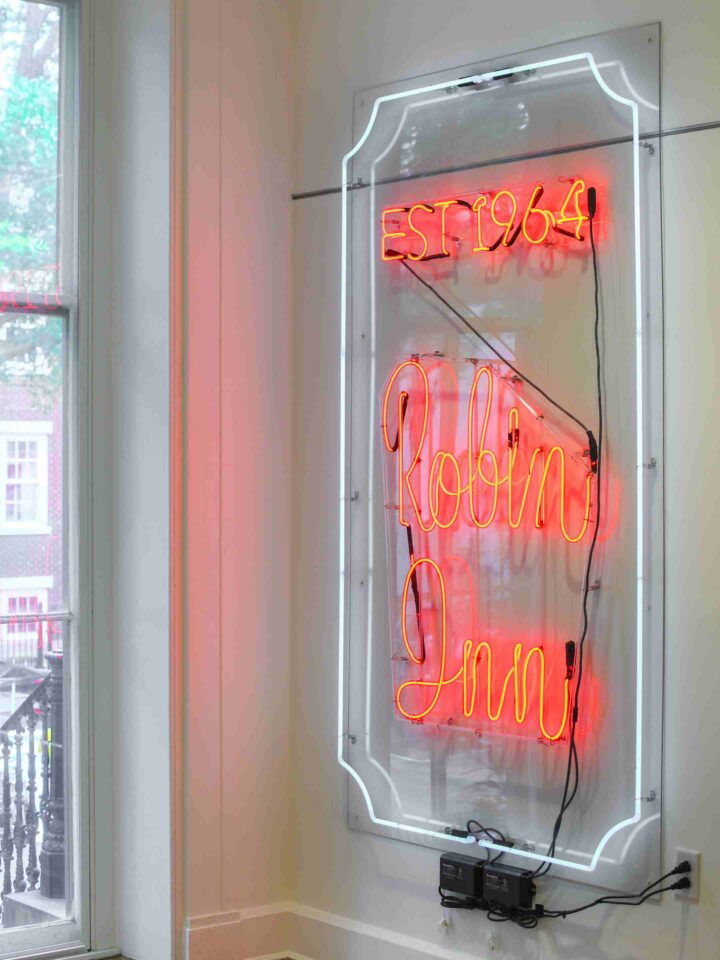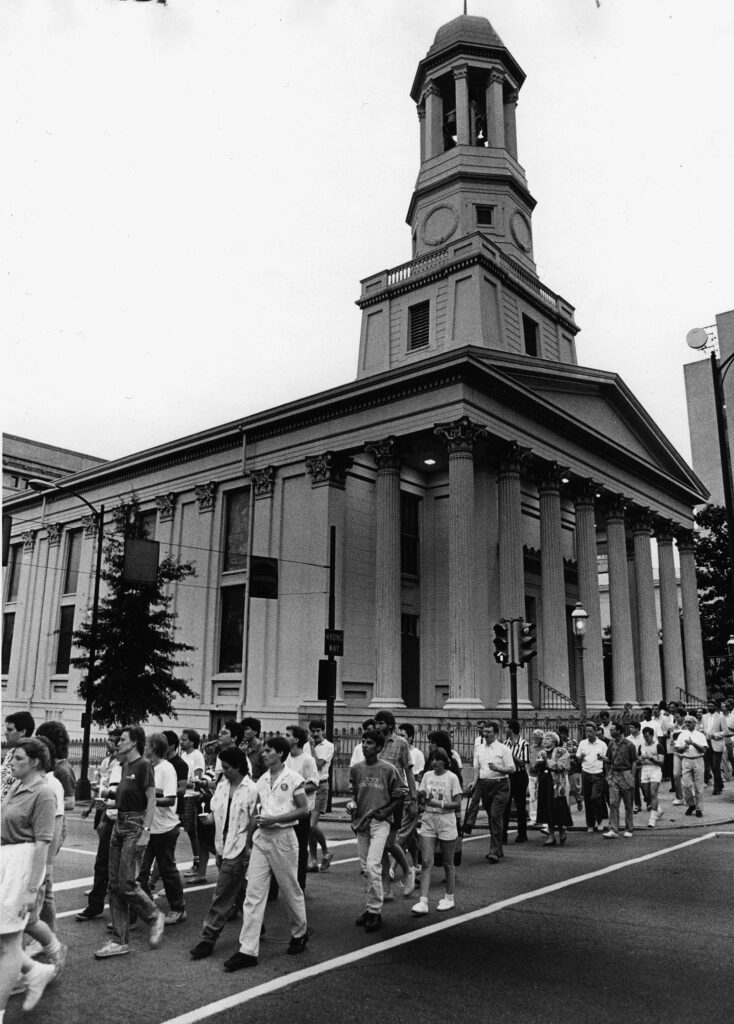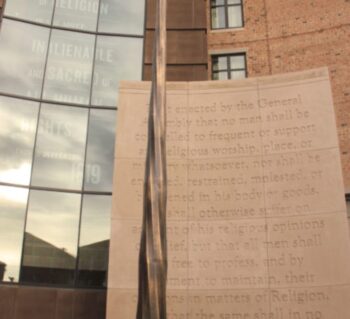
Fan Free Clinic
The first free clinic in Virginia, two doctors, a nurse and a minister founded Fan Free Clinic in 1970.
By Valentine Museum Staff
In the early 1980s, news outlets began to report about a mysterious new “gay cancer” in New York, Los Angeles and San Francisco. Little was known about the disease, other than its main demographic. At first, the threat seemed far away to many Americans, with risk limited to the urban gay community. But soon, the epidemic spread to smaller cities and the demographic picture blurred. By 1990, the estimated number of people diagnosed worldwide with Human Immunodeficiency Virus (HIV) was between eight and 10 million. With little information and with no known treatments, fear largely motivated responses in Richmond and around the word. People with AIDS were shunned. Hospitals posted huge warning signs outside patients’ rooms. Medical personnel wore hazmat suits and left food trays in the halls. Funeral homes refused to bury those who died of the disease. Here in Richmond, amidst this turmoil, a clinic initially founded to serve “hippies” stepped in to become the area’s leader in AIDS diagnosis, treatment, outreach and prevention.

The first free clinic in Virginia, two doctors, a nurse and a minister founded Fan Free Clinic in 1970. A large population of young, poor students and runaways had moved into the Fan District during the 1960s. Free love, communal living, recreational drug use and protests became the dominant lifestyle of the neighborhood. Skeptical of the judgment of the medical establishment, these young people tended to avoid doctors. When the Fan Free Clinic opened, it provided a revolutionary model for healthcare for a revolutionary generation. Without judgment and only using first names, the staff treated STDs, provided birth control, handled overdoses and treated a wide variety of injuries. They also provided counseling to young people entering into adulthood during this uncertain time.
A decade into operation, Fan Free Clinic had gained the trust of a skeptical community that had often avoided medical treatment. Soon, the staff began to notice that their young, mostly white counterculture patients had a lot in common with another medically elusive demographic: the broader population of urban poor, many of whom were Black. However, these individuals didn’t avoid medical care as an act of rebellion. Instead, many Black Richmonders couldn’t get time off work, struggled to find sustainable housing, couldn’t find childcare or simply couldn’t afford the care they needed. The Fan Free Clinic expanded to meet their needs as well, offering evening doctor appointments and advertising their services in homeless shelters.
When the AIDS epidemic hit Richmond in the 1980s, the Fan Free Clinic was poised to address the new healthcare threat. As hospitals balked at this mysterious new disease, as the media spread fear and misinformation and as scandalized citizens either moralized or refused to talk at all about the raging epidemic, Fan Free Clinic rose to the challenge. They formed Richmond’s frontline for HIV/AIDS treatment and prevention. In 1983, they set up an AIDS hotline and established Richmond AIDS Information Network (RAIN) with a network of volunteers. Through its AIDS hotline, volunteers answered questions about virus transmission and advocated for safer sex and the use of clean drug needles. Misinformation about how the disease spread terrified the American public, making education vitally important. Perhaps just as important, they fought the AIDS epidemic with compassion. RAIN provided services and companionship to those affected by the disease. They offered comfort to the dying, raised money for medical treatments and staged funerals. When other cemeteries around Richmond refused to bury AIDS victims, the Fan Free Clinic established their own burial ground.
The Fan Free Clinic, renamed Health Brigade, in still in operation today. Its mission remains unchanged: to provide medical treatment, health education and social services to Richmonders with limited access to care. Though its mission remains the same, the clinic’s reach has expanded in order to serve Richmond’s transgender community. As before, they are on the frontlines, combatting the healthcare challenges of a pandemic which has had a disparate impact on communities of color. Currently, Health Brigade is providing free testing and accurate COVID-19 information to a clientele that desperately need this vital lifeline of care.
Need to cite this?
| Authors | Valentine Museum Staff |
|---|---|
| Work Title | Fan Free Clinic |
| Website | https://thevalentine.org |
| Published | October 11, 2023 |
| Updated | May 24, 2024 |
| Copyright | © 2024 The Valentine Museum |


